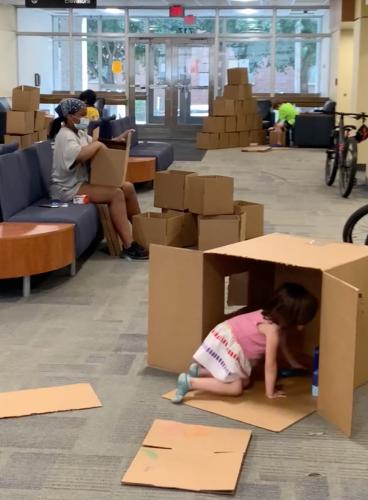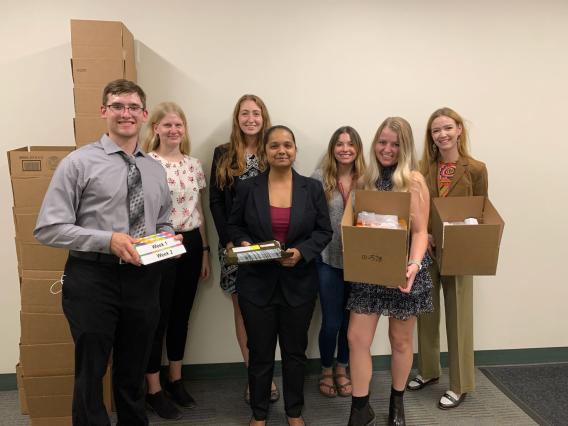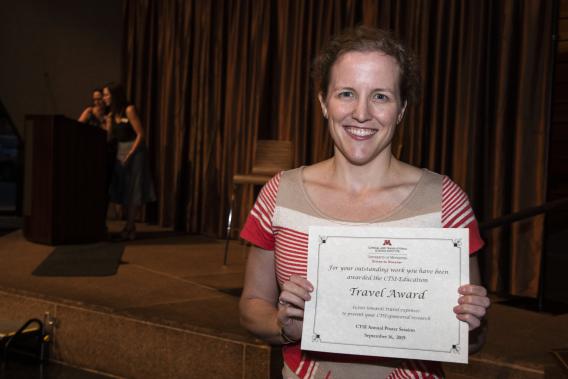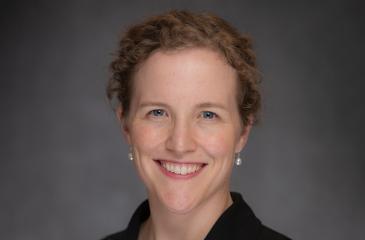CTSI KL2 scholar Carolyn Bramante, MD, MPH, led the nation’s first study on whether metformin, fluvoxamine, and ivermectin, or their combinations could serve as possible treatments to prevent ER visits or hospitalization, as well as Long-COVID.
Yesterday, the New England Journal of Medicine published the results of the clinical trial.
“Our trial suggests that metformin may reduce the likelihood of needing to go to the emergency room or be hospitalized for COVID-19,” said Dr. Bramante, an Assistant Professor in the Departments of Internal Medicine and Pediatrics at the University of Minnesota Medical School, in a University news release.
The randomized double-blinded placebo-controlled trial found that the widely available diabetes drug lowered the odds of emergency department visits, hospitalizations, or death due to COVID-19 by over 40 percent; and over 50 percent if prescribed early in onset of symptoms.
Protected time for research
To Dr. Bramante, her involvement in CTSI’s KL2 Scholars Career Development Program played an essential role in the study.
“The protected time through the KL2 program was critical to having the time to pay attention to details critical for making the trial possible,” says Dr. Bramante. “Being a clinician, with research training in a T32 research fellowship, gave me the background to do this trial. It’s so important that clinician-scientists who are early in their careers be able to devote as much time as possible to research.”
The career development program for the University’s rising stars in research offers 75 percent salary support, plus research and travel funds. With this support, Dr. Bramante could give the trial the time and attention it needed. This was particularly crucial for her COVID-19 trial, where time was of the essence — not just due to the urgency of the pandemic, but the importance of treating the disease early.

“We were driving to the airport ourselves to ship medications to Covid-positive participants as quickly as possible — our average was under one day,” she says. “This was essential to the trial’s success, but daily shipments are time-intensive and meant staff were spending less time on enrollment and follow-up. Because I could be involved in the day-to-day work, I quickly noticed and responded to challenges like these.”
Dr. Bramante jumped in, arranging for a courier to take packages from their building once a day and go directly to the airport. This allowed staff to focus more on the trial itself, and ultimately complete the study of more than 1,300 participants. Along the way, Dr. Bramante rolled up her sleeves as well:
“I made a lot of trips to FedEx, recruited my family and neighbors to help with box assembly, and taped countless boxes. These are basic tasks, but it was important to the study, so it was important that we all chip in.”

A secret weapon: Storytelling pros
One unique opportunity Dr. Bramante received through the KL2 program were coaching sessions on how to communicate in a way that inspires people to take action.
“A communications coach helped me enhance my presentation, which ultimately convinced foundations to fund the trial,” she says. “I never would have had access to this kind of hands-on expert guidance had it not been for the KL2 program.”
All of the monetary support for the trial itself came from foundations — specifically, the Parsemus Foundation, Rainwater Charitable Foundation, Fast Grants, and UnitedHealth Group.

Applying learnings in real-time
While the trial was underway, Dr. Bramante was also attending career development seminars through the KL2 program.
“I was applying what I learned through the KL2 training to my clinical trial in real-time,” recalls Dr. Bramante.
She credits the program with helping her improve her manuscript- and grant-writing skills, learn how to hire and manage a team of research coordinators, and build a team of mentors and collaborators.
“My mentors through the KL2 program were so supportive, plus I was able to meet new mentors who had the specific expertise needed to do this trial,” she explains. “Incredibly accomplished faculty from many disciplines and at outside institutions helped out, and I think the fact that I was a KL2 scholar made them more willing to meet with me. The KL2 program helps others know that you value rigorous training in research.”
In 2021, Dr. Bramante received an Outstanding Trainee: Early (Faculty) Career Development Award from the Association for Clinical and Translational Science (ACTS). The award recognized Dr. Bramante’s early dedication to research and her potential to change health policy. In this March 2021 video, Carolyn describes the COVID-19 trial and her commitment to finding safe, available, effective outpatient treatments for SARS-CoV-2 infection.
This research was supported by the National Institutes of Health’s National Center for Advancing Translational Sciences, grants UL1TR002494 and KL2TR002492. The content is solely the responsibility of the authors and does not necessarily represent the official views of the National Institutes of Health’s National Center for Advancing Translational Sciences
